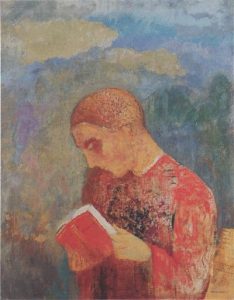2022-2023 TERM 1 | T Th: 9:30-11:00 AM
Course Description
 This course is an introduction to how to think philosophically about religion. What is religion? Why are people religious? What is religious experience? Is there a distinct kind of religious knowledge? What arguments can be given for or against the existence of God? What is faith? What is mysticism? What is the relationship between religion and spirituality? Can secular faith replace religion?
This course is an introduction to how to think philosophically about religion. What is religion? Why are people religious? What is religious experience? Is there a distinct kind of religious knowledge? What arguments can be given for or against the existence of God? What is faith? What is mysticism? What is the relationship between religion and spirituality? Can secular faith replace religion?
We will approach these questions by reading and talking about some classic modern books about religion. All the books have been chosen not just for their intellectual content but also for their style: they are existentially engaging and potentially transformative for how you live and think. The last three weeks of the course will be devoted to Martin Hägglund’s recent and widely celebrated book, This Life: Secular Faith and Spiritual Freedom, which presents a critique of religion and capitalism, while making a case for reconceiving faith in secular terms and for a new vision of democratic socialism. The readings earlier in the course will give you intellectual tools to think critically about Häggland’s case from a variety of religious and philosophical perspectives.
The course format will be a mixture of lecture and in-class discussion. No prior knowledge of philosophy or any particular religious tradition is assumed.
Texts:
Stephen Batchelor, The Faith to Doubt: Glimpses of Buddhist Uncertainty
Martin Hägglund, This Life: Secular Faith and Spiritual Freedom
David Bentley Hart, The Experience of God: Being, Consciousness, Bliss
C. S. Lewis, The Problem of Pain
T. M. Luhrmann, How God Becomes Real: Kindling the Presence of Invisible Others
Alvin Plantinga, Knowledge and Christian Belief
Paul Tillich, Dynamics of Faith
Krista Tippett, Speaking of Faith: Why Religion Matters and How to Talk About It
Evelyn Underhill, Practical Mysticism
Course Instructor
Dr. Evan Thompson, Department of Philosophy